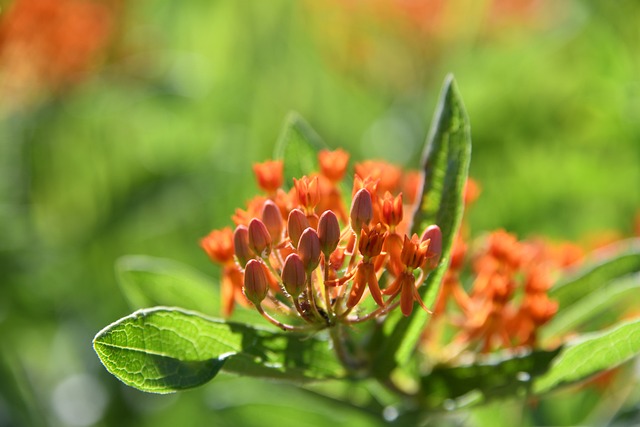THCA flower extract, a non-psychoactive compound from cannabis plants, has garnered attention for its potential health benefits. Unlike THC, it doesn't induce a 'high' and is under investigation for its anti-inflammatory properties, support of the endocannabinoid system, and ability to alleviate chronic pain and inflammation, as well as reduce nausea and stimulate appetite. Its neuroprotective and antioxidant qualities are also being studied for their protective effects against neurological conditions and for enhancing cellular health. Users report a calming effect from THCA flower extract, distinguishing it from THC products. The cultivation of high-THCA flowers for extraction requires precise agricultural techniques to maximize yield and preserve the compound's integrity. Post-harvest, careful handling is necessary to prevent decarboxylation into THC, ensuring the extract retains its beneficial properties for anti-inflammation and endocannabinoid system support. Applications of THCA flower extract are diverse, ranging from topical skin care to ingestible forms like capsules and tinctures, with preliminary studies suggesting it may also be beneficial for certain neurological conditions. As research continues, the use of THCA flower extract in health and wellness is poised to expand, showcasing its multifaceted potential for promoting health and well-being, with a focus on its therapeutic benefits.
Discover the transformative potential of THCA (Tetrahydrocannabinolic Acid) flower extracts, a natural compound gaining attention for its array of healthful properties. This article delves into the therapeutic benefits of THCA and offers expert guidance on cultivating and harvesting these potent plants to maximize extract yield. Additionally, explore innovative methods for harnessing the advantages of THCA flower extracts within wellness routines, enhancing your understanding of this burgeoning field. Unlock the secrets behind optimal THCA extraction and learn how it can be integrated into your lifestyle for potential health improvements.
- Unveiling the Potential of THCA Flower Extracts: A Closer Look at Their Benefits
- Cultivating and Harvesting THCA-Rich Flowers: Tips for Optimal Extract Yield
- Extracting and Utilizing THCA Flower Benefits: Methods and Applications in Wellness Routines
Unveiling the Potential of THCA Flower Extracts: A Closer Look at Their Benefits

THCA flower extract, derived from the cannabis plant in its raw, acidic form, has garnered attention for its potential wellness benefits. Unlike its psychoactive counterpart THC, THCA is non-psychoactive, offering a range of effects without the ‘high’ typically associated with cannabis consumption. Extracts rich in THCA are being explored for their anti-inflammatory properties and their potential to support the body’s endocannabinoid system, which plays a crucial role in maintaining homeostasis. Preliminary research suggests that THCA flower extract may offer therapeutic benefits for conditions like chronic pain and inflammation without the psychoactive effects of THC. Its anti-nausea and appetite-stimulating properties are also of interest to researchers and users alike, making it a subject of ongoing scientific investigation. As interest in cannabinoids continues to grow, the exploration of THCA flower extract benefits is an exciting frontier in natural health remedies.
Furthermore, the potential therapeutic applications of THCA flower extract are vast. It has been studied for its neuroprotective qualities, which may offer protective effects against neurological diseases. Additionally, its anti-oxidative properties could contribute to overall cellular health and longevity. Users report a sense of well-being and relaxation without the disorienting or intoxicating effects associated with THC products. As the body of research continues to expand, it is becoming increasingly clear that THCA flower extract has a unique position in the cannabinoid landscape, offering a wide array of potential benefits that warrant further clinical investigation.
Cultivating and Harvesting THCA-Rich Flowers: Tips for Optimal Extract Yield

Growing THCA-rich flowers requires careful attention to cultivation practices to ensure a high yield of extract with optimal benefits. The acronym THCA stands for Tetrahydrocannabinolic Acid, which is the raw form of CBD and becomes CBD after proper decarboxylation. To maximize the THCA content in your flowers, it’s crucial to cultivate under controlled conditions that mimic the plant’s natural environment. Optimal soil quality, ample sunlight, and a consistent temperature are essential for healthy plant growth and high THCA concentrations. Regularly testing the pH levels of your soil can help maintain an ideal growing medium, typically ranging between 6.0 and 7.5, as this can significantly influence the cannabinoid profile.
When it comes to harvesting, timing is critical to preserve the THCA in its most potent form. Harvest your flowers when they have reached maturity but before they begin to degrade. This typically occurs when the trichomes on the flower’s resin glands are cloudy rather than milky or amber, as this indicates the highest concentration of THCA. Carefully trim and dry the flowers in a well-ventilated, dark area to prevent degradation. Proper drying will preserve the THCA content, ensuring that when you extract the oil, you obtain a product rich in the benefits associated with THCA flower extracts, such as potential anti-inflammatory properties and support for the body’s endocannabinoid system. Avoid excessive heat and humidity during this process, as these conditions can lead to THC formation through decarboxylation, altering the intended effects of your extract. After drying, you can proceed with extraction methods like CO2 or ethanol to obtain a clean and potent THCA extract, ready for various applications.
Extracting and Utilizing THCA Flower Benefits: Methods and Applications in Wellness Routines

THCA flower, rich in tetrahydrocannabinolic acid (THCA), is a non-psychoactive compound found in cannabis plants that has garnered attention for its potential health benefits. Extracting THCA from flowers involves a careful process to preserve the acidic form of THC before it degrades into THC upon heating, as THCA has different effects and uses. The extraction method typically includes cold temperatures and avoidance of light to prevent decay. Once extracted, THCA flower extract can be utilized in various wellness applications.
The benefits of THCA flower extract are vast and include anti-inflammatory, neuroprotective, and analgesic properties. These advantages make it a valuable addition to wellness routines. For instance, topical applications of THCA extract have been explored for skin health due to its potential to soothe irritation and promote healthy skin. Ingestible forms, such as capsules or tinctures, are also popular for those seeking internal support for their endocannabinoid system, which regulates various physiological processes. Additionally, THCA is being studied for its neuroprotective properties, suggesting it may have applications in managing neurological conditions. Incorporating THCA flower extract into one’s wellness routine therefore offers a multifaceted approach to maintaining health and well-being, with ongoing research continuing to uncover new potential uses and benefits.
THCA flower extracts have emerged as a significant focus in the wellness community, offering a myriad of potential health benefits. From the cultivation practices that optimize their yield to the innovative methods for extraction and utilization, understanding THCA flower extracts is crucial for those looking to explore their advantages within wellness routines. This article has delved into these aspects, providing readers with a comprehensive overview of how to effectively harness the benefits of THCA flower extracts. As interest in cannabinoid-based therapies continues to grow, this knowledge will be invaluable for enthusiasts and healthcare professionals alike, paving the way for informed and responsible use of these promising compounds.


